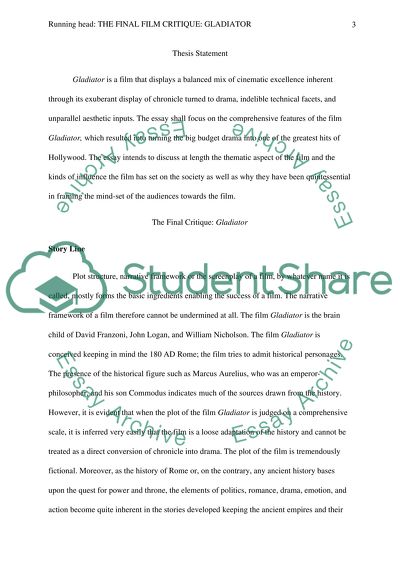Cite this document
(“Film Critique on the movie Gladiator (Russell Crow) Essay”, n.d.)
Retrieved from https://studentshare.org/visual-arts-film-studies/1479032-film-critique-on-the-movie-gladiator-russell-crow
Retrieved from https://studentshare.org/visual-arts-film-studies/1479032-film-critique-on-the-movie-gladiator-russell-crow
(Film Critique on the Movie Gladiator (Russell Crow) Essay)
https://studentshare.org/visual-arts-film-studies/1479032-film-critique-on-the-movie-gladiator-russell-crow.
https://studentshare.org/visual-arts-film-studies/1479032-film-critique-on-the-movie-gladiator-russell-crow.
“Film Critique on the Movie Gladiator (Russell Crow) Essay”, n.d. https://studentshare.org/visual-arts-film-studies/1479032-film-critique-on-the-movie-gladiator-russell-crow.


